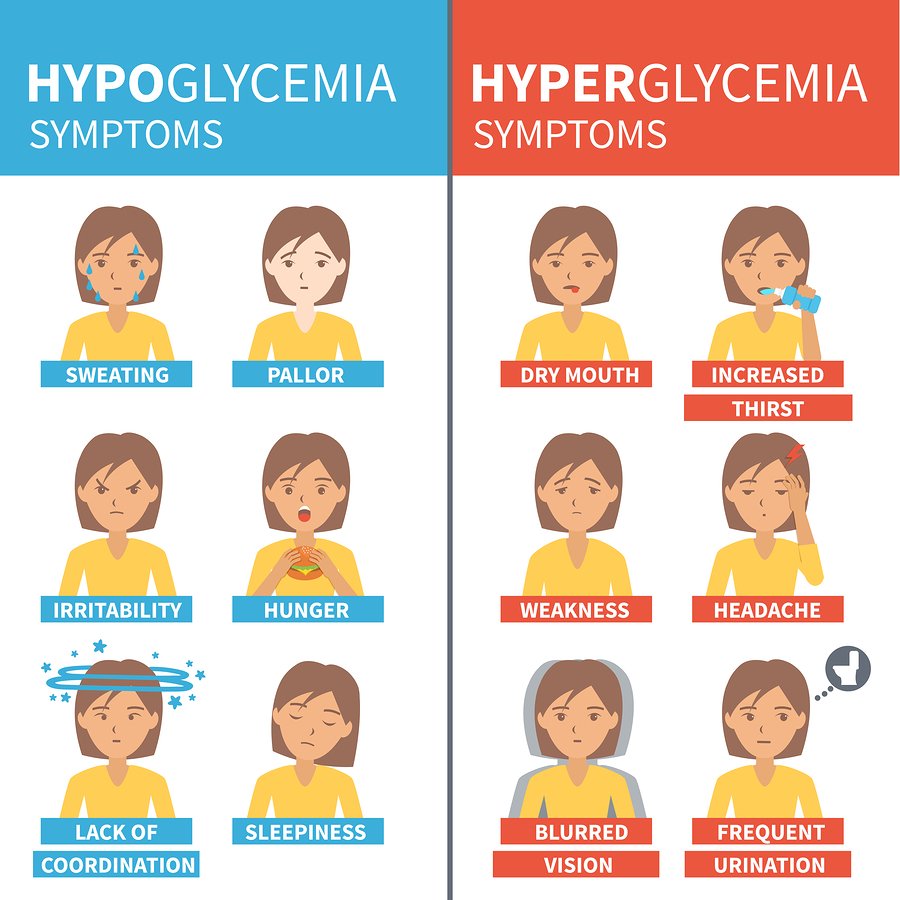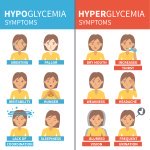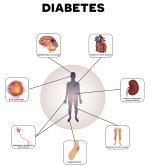Symptoms of Hypoglycemia

Symptoms of hypoglycemia you should know about. When your blood glucose levels drop below normal levels, the result is hypoglycemia or abnormally low blood glucose. Often this is caused by an excess of insulin or a poor diet. It can also be caused by a delay in eating a meal or from stressing the body by overdosing on exercise.
The term hypoglycemia is also referred to as "insulin shock" because of the extreme and sudden effect that it has on the body. Because hypoglycemia or low blood sugar can cause brain dysfunction and weakness, it is vital that those at risk learn to recognize its symptoms.
Seriously low blood sugar can lead to serious complications if not treated quickly. In acute cases a sugar pill or glucose solution is consumed to bring blood sugar levels up quickly. In chronic cases it is fairly easily dealt with by a change of diet and/or health regime.
Hypoglycemia is most often diagnosed in healthy adults when blood sugar levels reach below 4 mmol/L. Medical tests are needed to properly diagnose this condition, as age and general body condition have to be considered before a proper diagnosis can be made.
Symptoms of Hypoglycemia to Look Out For
The symptoms of Hypoglycemia are very similar to Diabetes mellitus itself, and include; dizziness, especially before meals; uncharacteristic irritability or short temper, slurred speech, huge hunger pangs, and blurry vision. In extreme cases, hypoglycemia can lead to a Coma. Strangely enough, nightmares and calling out in one's sleep are sometimes signs of Hypoglycemia, usually brought on by overheating in bed.
Here are some of the more obvious symptoms to watch out for:
Pale and sweaty skin - when the body begins to experience low blood sugar or hypoglycemia it releases epinephrine, also known as adrenaline. This is an attempt by the adrenal glands to raise the body's blood glucose levels. High levels of the epinephrine hormone cause the skin to become very pale.
Racing heart beat - adrenaline also causes the blood vessels to constrict and the heart to beat much faster than normal. The person may experience heart palpitations and a pounding heartbeat. Other symptoms caused by adrenaline flooding through the body can be trembling of the limbs, a tingling sensation in the hands, and a general sense of anxiety.
Headaches - The brain, as do all of the major organs, needs sugar or glucose. A drop in blood glucose levels means that there is less glucose available to the brain. If there is only a slight drop in the sugar levels, the result may be a mild headache or double vision. A more severe drop, however, can lead to difficulty concentrating, confused speech or seizures. And an even greater drop can lead to loss of consciousness and in some cases, lapsing into a coma.
Extreme hunger - the body is in a constant state of adjusting itself to various circumstances. When blood glucose levels drop, the body instinctively understand that it needs food to get the levels up again. The way of letting us know that is to send hunger signals from the brain to the body in an attempt to get us to eat. If we eat proteins, healthy fats and green vegetables, our blood sugar levels return to normal and the hunger subsides. If we eat a meal filled with simple carbohydrates like sugar and bread, our blood sugar levels will raise quickly and may even cause hyperglycemia (high blood sugar levels). Any quick increase in blood sugar is often followed by a quick decrease in blood sugar which may cause hypoglycemia again.
The above signs usually do not start to show until the blood sugar levels fall a significant amount …such as below 55 milligrams per deciliter of blood. It's very important to know that some medications may mask some of these symptoms. In addition, not everyone has the same reactions to low blood glucose so they may naturally experience different symptoms.
It is not unusual for someone diagnosed with diabetes to occasionally get hypoglycemia. In fact, many diabetics become familiar with symptoms of hypoglycemia because regulating the blood sugar levels with medicine, although fairly accurate, is not an exact science. As blood glucose levels return to normal, the symptoms of hypoglycemia will normally dissipate. Nevertheless, anyone experiencing any of the above conditions should ensure that their physician is aware of them.



New! Facebook Comments
What do you think? Share your thoughts below...